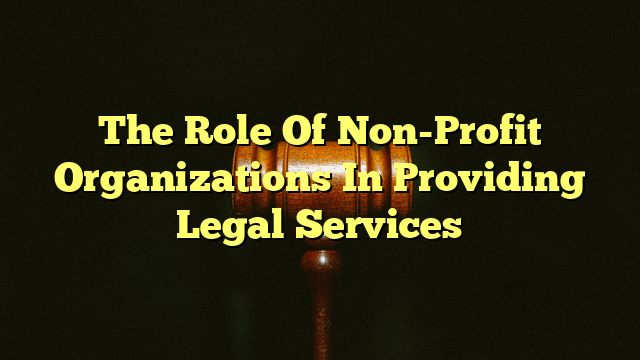Nonprofit organizations are an important part of society, providing a wide range of services that would otherwise not be available to the public. Nonprofits are able to provide these services due to their unique legal structure, which allows them to operate without having to pay taxes. This structure also allows them to receive tax-deductible donations, and grants from government and private sources.
Nonprofit organizations are also uniquely positioned to provide legal services to those in need. This is because they are able to provide legal services at a lower cost, due to their tax-exempt status. Additionally, nonprofit organizations are often better-equipped to provide comprehensive legal services, due to their access to resources, such as skilled attorneys, legal experts, and financial assistance.
Table of Contents
- Role of Non-Profit Organizations
- Four Major Functions of Nonprofits
- Legal Structure of Nonprofits
- Interaction between Nonprofits and Government Agencies
Role of Non-Profit Organizations
Nonprofit organizations play a vital role in providing legal services to those in need. These organizations are able to provide legal services in a wide range of areas, from family law and immigration to intellectual property law and civil rights. This is critical for those who may not be able to afford legal services in the private sector.
Nonprofits are also able to provide legal services in a variety of ways. For example, many nonprofits provide free legal advice, pro-bono legal services, and even representation in court. Additionally, nonprofits are able to advocate for those in need, and work with government agencies to ensure that the rights of their clients are respected and upheld.
Four Major Functions of Nonprofits
Nonprofit organizations are able to provide legal services in a variety of ways, but there are four major functions that nonprofits typically perform in relation to government:
- Advocacy – Nonprofits are often able to advocate for their clients, and work to ensure that their rights are respected and upheld.
- Education – Nonprofits are able to provide education to the public on a variety of legal topics, such as family law, immigration, and civil rights.
- Research – Nonprofits often conduct research on legal topics, and use their findings to inform policy and legislation.
- Resource Connections – Nonprofits are able to connect those in need with resources, such as attorneys, financial assistance, and other services.
Legal Structure of Nonprofits
In order to receive tax-exempt status, nonprofits must incorporate and register with the IRS. This is an important step, as it allows the organization to receive tax-deductible donations, and grants from government and private sources. Additionally, nonprofits must also meet certain criteria, such as having a governing board and having a mission that does not involve making a profit.
Interaction between Nonprofits and Government Agencies
Nonprofit organizations interact with government agencies in a variety of ways. For example, nonprofits may provide legal services to those in need, advocate for their clients, and conduct research. Additionally, nonprofits often collaborate with government agencies on policy and legislation, and receive grants and other funding from government sources.
Nonprofits also have the unique opportunity to provide feedback to government agencies on their policies and procedures. This is critical, as it allows nonprofits to ensure that the rights of their clients are respected and upheld.
Nonprofit organizations are an important part of society, and play a vital role in providing legal services to those in need. Nonprofits are uniquely positioned to provide legal services at a lower cost, due to their tax-exempt status. Additionally, nonprofits are often better-equipped to provide comprehensive legal services, due to their access to resources, such as skilled attorneys, legal experts, and financial assistance. Nonprofits also interact with government agencies in a variety of ways, from providing legal services to collaborating on policy and legislation


Non-profits have an important role to play in providing access to legal services for those in need, ensuring fair and just societies.
Non-profits play a crucial role in providing legal aid. Governments should also consider subsidizing legal aid.
Non-profit organisations are making a significant impact in providing legal services to those in need. Their role is invaluable.